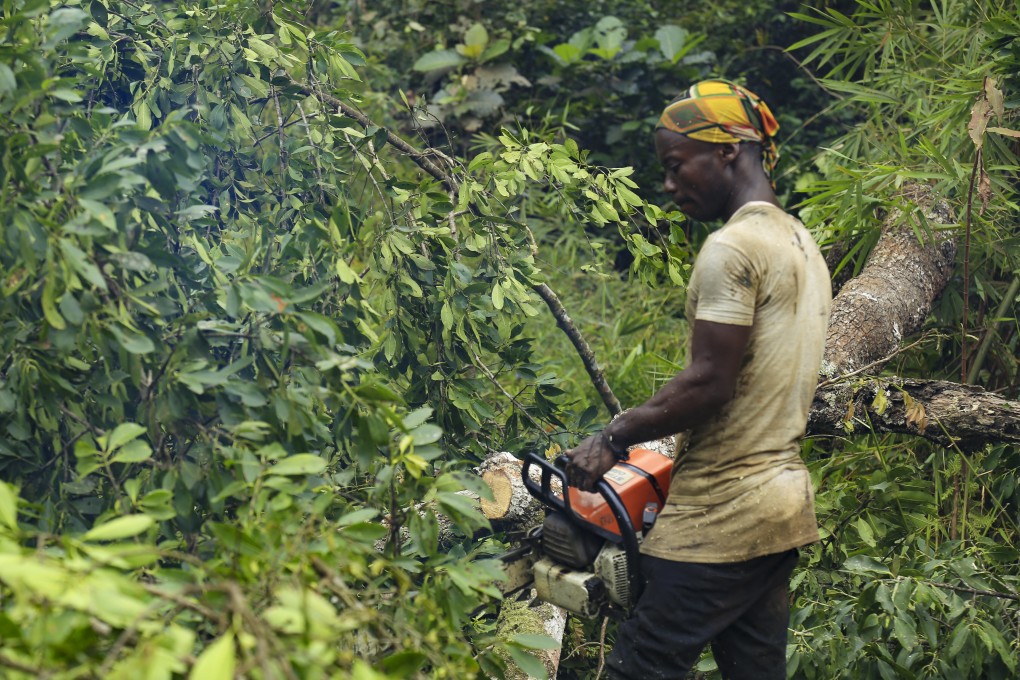DR Congo’s rethink of logging deals ahead of COP26 climate change summit could hit Chinese firms
- The government is keen to emphasise its environmental credentials and fears illegal contracts have put US$1 billion international conservation funding at risk
- Chinese firms are not directly targeted, but the country is the biggest export market for rosewood – a resource targeted by illegal logging operations

President Felix Tshisekedi told a meeting of the council of ministers last week that such actions were necessary “to make it easier for the country to benefit from the funds provided on the international market”.
The DRC is hoping to secure US$1 billion funding for its conservation plans from the Central African Forest Initiative (CAFI), a coalition of donors including Norway, France, Germany and Britain.
CAFI had threatened to cut funding after the Congolese government breached an agreement it struck with the initiative to conserve the forest in return for international aid money by awarding new contracts.
Although Tshisekedi did not expressly mention Chinese companies – which play a major role in other sectors such as mining – they are big players in the timber business, especially for rosewood, which is in high demand for luxury Chinese furniture.
This demand has made the Central African nation a key source for timber, which environmentalists say is illegally sourced – often from protected areas.